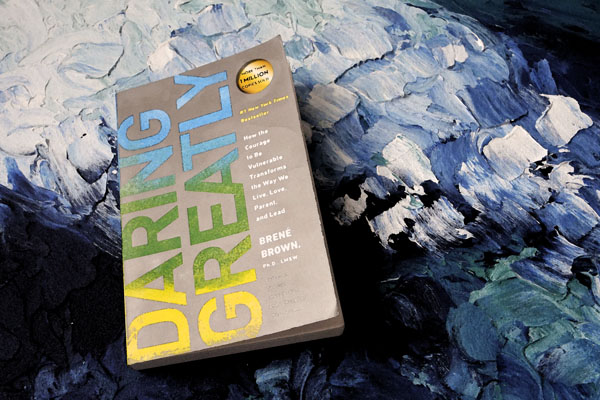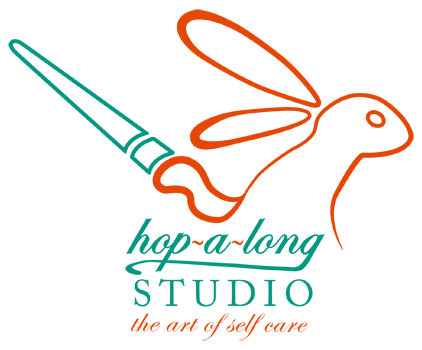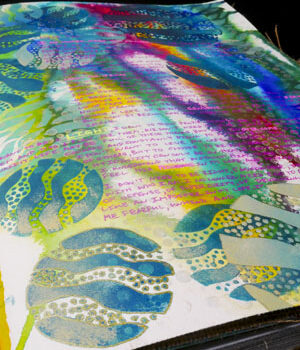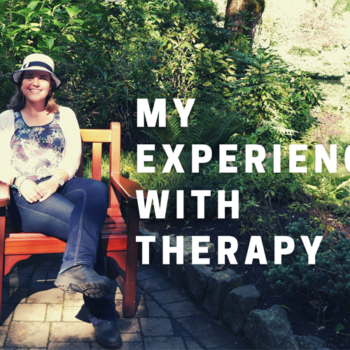
3 Lessons I Learned from Daring Greatly
My book review this month is 3 Lessons I Learned from Daring Greatly by Brene Brown. This is a fabulous book about having the courage to be vulnerable and how it can transform our lives. For anyone who wants to greatly improve their self-care and mental health, this book is a must read. I wanted to share with you the 3 lessons that I learned personally from Daring Greatly.
I am Uncomfortable with Vulnerability
My first lesson from this book was realizing that I am uncomfortable with vulnerability. Brene Brown writes about what she has learned as a shame and vulnerability researcher. She speaks about her interviews with her research participants about vulnerability and shares some of their responses. I found it a bit of a hard read at times, they are so honest in their responses and I can relate to those experiences.
Her research participants answered these questions:
- “Vulnerability is ____________.”
- How does vulnerability feel?
I have been thinking about these questions a lot lately, which is a good thing but it also brings with it feelings of anxiety. Brene mentions that vulnerability can make us feel so naked, and I totally agree. Feeling exposed, feeling naked isn’t an easy thing.
What is Vulnerability Really About?
But as difficult as it is, isn’t this what vulnerability is really about? Vulnerability comes from the Latin work “vulnerare” meaning “to wound.” Other definitions included “capable of being wounded” or “open to attack or damage.” Being vulnerable to others means that we are willing to open ourselves up to being wounded but also understanding that it’s worth the risk.
Vulnerability and Courage
Brene writes about how we confuse feeling with failing and emotions with liabilities. We look at vulnerability as weakness instead of realizing how strong it makes us. As this book says, “Vulnerability sounds like truth and feels like courage.”
Vulnerability is difficult but to have the greatest connection requires the greatest vulnerability. I’m sure we can all recall a time when we heard someone speak honestly, candidly and inspirationally to us. We feel connected to them and to their story. We marvel at their courage to tell us something personal about their lives. We see it as courage, but what they are doing is displaying vulnerability. We need to change the lens in which we see vulnerability. We may see it as weakness in ourselves, but in reality, it shows amazing courage and strength to really show others who we are.
I’m uncomfortable with vulnerability because like everyone else, I’ve gone through trauma. More than anything, I want to be vulnerable. It’s challenged me to continue to work through things so that I can show up in my own life in a powerful way. I want to have the courage to be vulnerable and to be seen.
Shame is Everywhere
The second lesson that I learned from this book is how shame is everywhere. It permeates so many of our relationships whether we like it or not. Brene has some amazing insights on shame, not just the shame we experience when dealing with others, but the societal pressures that bring shame.
So why is shame so powerful? Shame is the fear of disconnection. It is the fear that we are unworthy of connection due to something we failed to accomplish. Brene speaks about the 12 shame categories that emerged as she interviewed people. These categories are things we are judged on every day that can make us feel alone and disconnected. We all feel shame, but how do we combat it?
Shame or Guilt?
Brene talks about the difference between shame and guilt. It is the difference between “I am bad” and “I did something bad.” Guilt is I did something bad, while shame is I am bad. It’s amazing how shame gets to us in a way that our entire value is attached to shame.
Since shame is everywhere and cannot be avoided, we need to look at the ways we can find shame resiliency. Brene talks about how to remain resilient and grounded when shame wants to destroy us. She gives some great ideas on how we can prevent shame from influencing our lives too much and how we move past it in a healthy way.
Shame Resiliency and Self-Compassion
One of the ways to improve shame resiliency is through self-compassion. When we show kindness to ourselves instead of letting shame destroy us, we can reach out, connect with others and find empathy instead of judgement. This isn’t always easy, because it requires vulnerability. It means practicing courage and reaching out to others even though our experience may be embarrassing or traumatizing.
We must learn to talk to ourselves with compassion, in the same way we would comfort a close friend going through the same thing. Do we show empathy to our friends? Then we need to start showing empathy to ourselves. It is also having the courage not to bury what has happened to us. By owning our stories and not letting them define us, we can then find compassion, empathy and freedom.
Learning to Remove the Vulnerability Armour
The last lesson I learned from Daring Greatly was the idea of vulnerability armour. Understanding what vulnerability armour looks like and how it keeps us from finding vulnerability was the most important lesson for me. This armour includes foreboding joy, perfectionism and numbing.
Foreboding Joy
Foreboding joy is insidious. It’s not the lack of wanting joy, but it is trying to have joy while expecting the other shoe to drop. We are living in “joy,” but not in true joy because you are expecting something bad to happen. I’ve had moments like this throughout my life, where I’ve been joyful but I’m just waiting for something to go wrong because things feel almost too good to be true. That is foreboding joy.
Rather than living in the moment and loving the moments we are given; it’s putting on armour so that we don’t have to feel vulnerable. Instead of dealing with disappointment or hurt when it comes, we live in foreboding joy so that we can be “prepared” when bad things happen.
So how do we prevent foreboding joy? Brene writes about finding the joy in the ordinary moments and finding joy in the small things in life. We can choose to be grateful for what we have and finding gratitude in the little things. Considering some of the things that are happening in the world right now, I truly believe finding gratitude in the small things is more important than ever.
Brene also speaks about not squandering our joy. If we are willing to be vulnerable and to soften into joy, not only will we have joy but hope will come with joy. Instead of expecting the worst, we can fully embrace the joyful moments that we are in.
Perfectionism
Perfectionism is a dangerous thing because it prevents us from being vulnerable and self-compassionate. It keeps us from realizing our gifts and sense of purpose. I used to see perfectionism as a good thing, but the more time goes on the more I realize that it’s self-destructive, addictive and leads to shame. I have realized that I need to purge it from my life.
I think there’s a lot of misunderstanding about perfectionism. When I worked in an office I would hear from myself and others, “I’m such a perfectionist.” What I really should have been saying is that I am a detailed orientated person and a strong achiever.
The Danger of Perfectionism
Perfectionism does not help us strive for excellence, instead it is defensive. We never do our best when we are defensive. It can cause self-destructive and addictive behavior where we try to control everything.
Perfectionism is the opposite of self-improvement. It affects our personal value, because we see our sense of worth being tied in what we accomplish instead of who we are as people. It is focused on the external; we base our sense of perfect on what others think. From this we strive to be more perfect and in control of every moment. This doesn’t help us grow, to learn or to become better. Instead we are mired in perfect and this leads to fear and shame.
Moving Past Perfectionism
So how do we become resilient enough to move past perfectionism? We move beyond perfectionism by showing ourselves kindness and self-compassion. We need to allow ourselves to see the beauty in the imperfection. Perfection is an unattainable goal. Instead of hiding behind a mask of perfection, we can allow ourselves to be seen for who we are.
By believing that we are worthy, for who we are instead of by our performance we can live in freedom. By being mindful of the things that try to drag us into perfection and into competition with others, it can help us choose a different path. We can choose a life of peace and kindness to ourselves and others.
Numbing
Numbing sounds like strange armor for vulnerability, but it’s the one we most often don’t recognize. For a long time, I didn’t recognize it in my life. Brene talks about the one universal numbing strategy as “crazy busy.”
This year I have become especially sensitive to the chaos around me. Perhaps it’s been living a quieter life. When I see people run around like crazy with no sense of purpose or connection I find it to be very disturbing. A few weeks ago I wrote about finding rest. As I’ve been reading Daring Greatly it has affirmed how much we use numbing in our daily lives to protect ourselves. If we are crazy busy, then we don’t need to feel vulnerable or lonely or even have to feel anything at all.
Busyness is an Addiction
Busyness is an addiction as much as alcohol, cigarettes or drugs are considered addictions. All addictions are mental and are rooted in hurt and trauma, but busyness is often seen as an acceptable addiction. We numb feelings because they can be hard to process, they are painful. At the same time, they also numb us to the most important things: creativity, love, joy, and belonging.
So why do we do it? Feelings of anxiety or shame of disconnection are powerful things. It is such an easy trap to fall into. I was on the busy train for many years and when things imploded, mentally it was incredibly difficult. I don’t ever want to live that way again. I would prefer to live a life of connection, where I need to work through the emotions, the hurt and the vulnerability than to feel numb and trapped in despair again.
How About You?
These are a few of the many lessons I learned from Daring Greatly by Brene Brown. I believe that this is a book that everyone should read. When you put the lens of vulnerability on situations, it’s amazing what you will discover.
What did you think about this article? Is this something that resonates in your own life? I would love to hear your impressions in the comments below or you can contact me directly. I hope that you have a fabulous week and can find ways to Dare Greatly in our own life.





